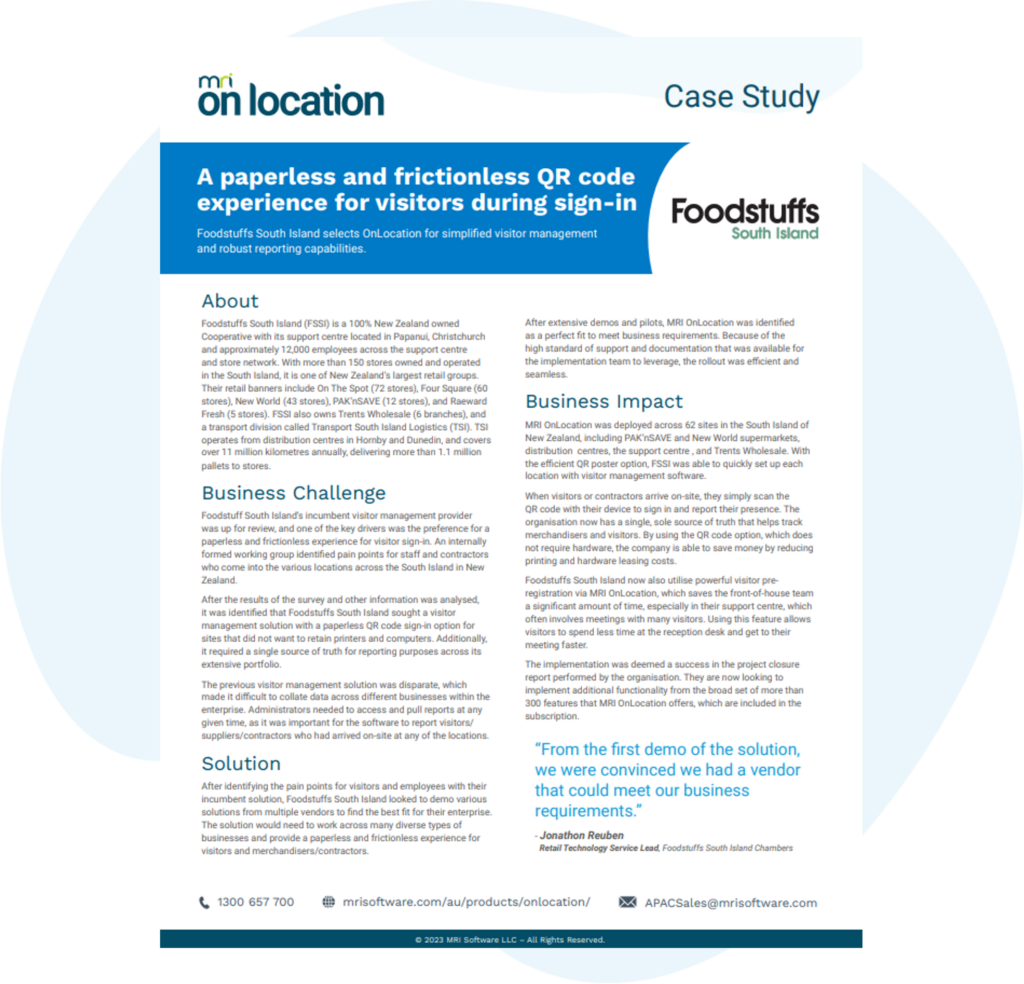How to attract and retain great staff in property and strata management
Staff retention is a challenge for every Property and Strata Management business. According to a recent Australian Financial Review article, about 30% of property managers have left the industry over the past year, and the Macquarie Strata Management Benchmarking report found that the average turnover rate across the strata industry was around 25% – with strata managers having the largest slice of the pie.
Regular turnover makes it difficult for agencies and the industry to grow with pace, so what can you do to ensure the best people stick around for a long time?
In the recently concluded MRI Ascend APAC 2021, David Bowie, MRI APAC Managing Director sat down with Leanne Pilkington, CEO of Laing+Simmons and President of REINSW, and Joshua Baldwin, Director of Strata Community Association and Executive Director at Munro Group, to discuss what agencies can do to attract and keep great talent, and how the industry can support businesses in their initiatives to increase and improve the talent pool.
Why are people leaving the property and strata management industry?
The fast-paced and multi-tasking nature of both strata and property management roles aren’t for everybody, but that level of stress has certainly been amplified with the ongoing pandemic.
In the same AFR article, industry leaders mentioned COVID-19 related stress as the top reason why property managers leave, and Leanne agrees: “It’s stressful because you’re dealing with tenants and landlords and even yourself, under financial pressure – that level of stress can be hard to manage, and I don’t think the industry can provide property managers enough skills in dealing with such difficult situations.”
Stress is also a key factor for strata managers leaving their jobs. Josh explains how the difference between what the clients expect and what the strata managers perform for the role creates that stressful situation in which strata managers have to perform additional tasks on them top of their core responsibilities.
How to attract and retain talent in property and strata management
1. Keep communications clear and open
In business, we learn about customer experience and how communication is key to understanding customers’ needs that will get them on board and keep them coming back. This same principle should also be applied in talent retention and acquisition. Attracting new talent and nurturing current staff is never going to be a one-size-fits-all program and understanding each of your employee’s needs is fundamental to the process. “Business owners have to make time to connect with their people and truly understand what makes them tick,” said Leanne. For Josh, this is also an opportunity for business owners to help current and potential employees understand the business better, “Invite them to see that perspective as a business owner. When you get that ownership perspective, it’s much clearer and easier to make them understand what the business is going through.”
2. Encourage competence
Learning opportunities and clear paths to advancement are big motivators for both employees and job seekers. From onboarding to ongoing education, training and upskilling employees can help make them feel valued as they gain new skills to become more competent at their job and eventually, take their career to the next level. Business owners should always encourage staff to improve their skills by providing the opportunities and responsibilities that will allow them to grow.

3. Offer more flexibility
Flexibility is certainly a constant theme that we’re seeing in the job market today, signifying its growing importance in talent management and acquisition. Recognising this shift towards flexibility can help property and strata management businesses gear for the future of work, and how they should be measuring their staff’s productivity. “Not all business owners are open to the idea of working from home and it will come down to the way you manage people,” said Leanne who added that this new style of working calls for a different approach of managing by outcome that doesn’t require constant monitoring of employees.
Being open to flexibility also means that you have to manage how people cope working from home vs office, as working from home will not be for everybody and it’s important to understand which environment your staff feels more productive working. Josh, who’s a big advocate of working from home himself, also sees remote working as an opportunity for businesses to modernise their systems with cloud-based strata modules and property management software, as well as mobile apps that can help staff do their work more efficiently.
4. Rethink your workplace
The hybrid office will be an important part of the work environment as we move towards more flexible working arrangements. There’s certainly going to be people who would still prefer to work in the office, and some would still want that social space to connect with colleagues from time to time, making it important that you create a conducive space for your employees to work and collaborate whether on-site or online.
The seamless transition between the physical and virtual office will be one of the deciding factors for today’s workforce in looking for new opportunities vs. staying with their organisations. Josh shares how their business is redefining the office and how they are utilising the space to maximise its functionality: “We’ve gone to hotdesking and rolled out new technology to ensure the mobility and connectivity of our staff. So, you can be in the office or outside and it’s essentially the same amount and quality of work being done.”
5. Foster a positive work culture
Much has been said about workplace culture but the lasting impact of the pandemic on property and strata managers has certainly added more depth to the role of great workplace culture in employee retention and even in attracting new talent. “Working with an organisation that shares your values is incredibly important for today’s workforce, people now want to be working for an organisation that has a purpose,” said Leanne.
Sharing the same sentiment, David added how property and strata managers make a difference in people’s day to day lives, and it is this sense of purpose that can help create a great culture that employees can be proud of, and that people outside the industry can find rewarding.
Having a healthy workplace culture also translates to having that support system in place when times are tough and this couldn’t be truer for both property and strata managers, “Strata and property managers often carry the burden of other people’s stresses, and having a great culture allows you to freely connect with colleagues to talk about the challenges of your job,” shared Josh. David also mentioned the role technology plays in support of positive work culture, “Technology should make the work experience better. When you deal with all these stresses the more you need technology to make it easier for your employees to do their job, help them enjoy their work more and make them more productive.”
6. Be open to source new talent outside the industry
When it comes to hiring, it’s always a good idea to cast a wide net to attract the best talent – and nowadays, that means also looking outside the real estate industry. Understanding the core of your business can guide you in sourcing new candidates who have the potential to bring something good and new to the table. “Property management and strata management is essentially a customer service role and if you can attract people from the hospitality and travel industries, for example, we have that great opportunity to take our customer service to the next level,” said Leanne. By bringing in new people with different industry experiences, you benefit from new perspectives, new solutions, and new working styles that can help improve your team’s skillset and evolve your business.
Staff retention and talent acquisition is a challenge that everyone in the industry can learn from. In his closing remarks of the session, David shared his insight on the issue and why he believes adaptability to new methods of staff management can help the industry succeed: “It is an opportunity to do things differently and to create a more compelling industry which great people can be a part of, and eventually make a difference into how people live, work and play – and that is a great purpose.”
Watch the full session
Learn more about staff retention in property and strata management when you watch the complete session on-demand. For more sessions discussing the latest trends and issues in the industry, check out MRI Ascend APAC 2021 Playlist on YouTube.
Foodstuffs South Island – A paperless and frictionless QR code experience for visitors during sign-in
Foodstuffs South Island selects OnLocation for simplified visitor management and robust reporting capabilities. About Foodstuffs South Island (FSSI) is a 100% New Zealand owned Cooperative with its support centre located in Papanui, Christchurch and …

